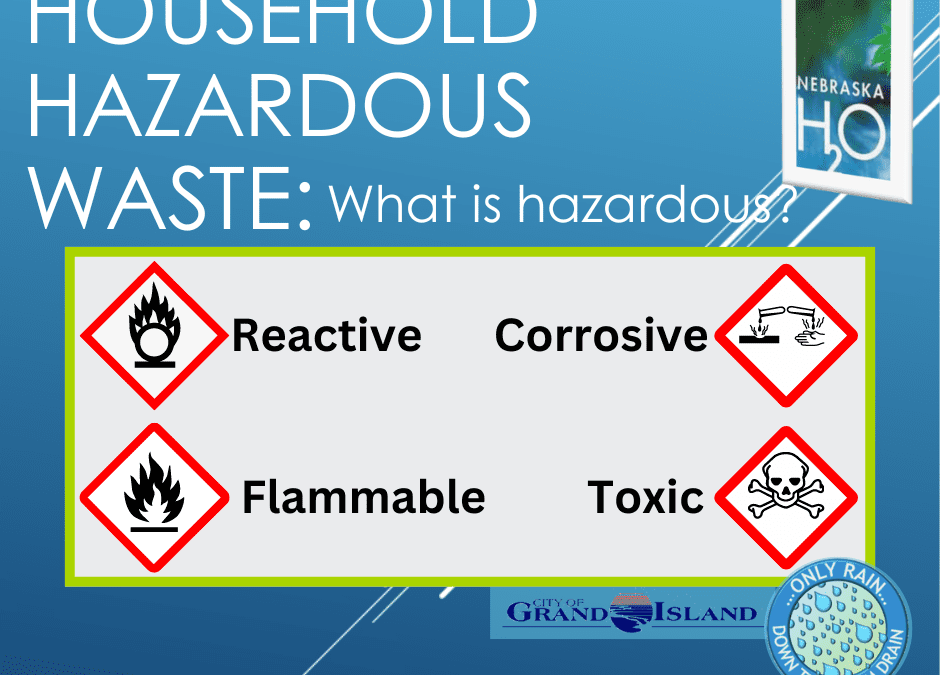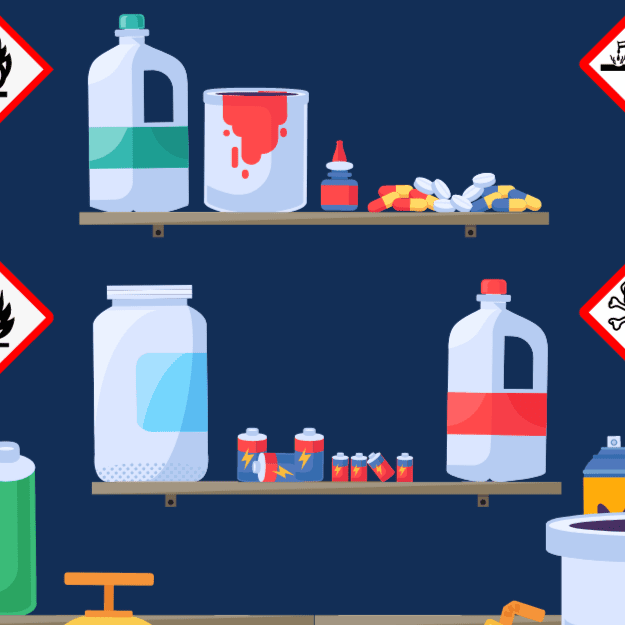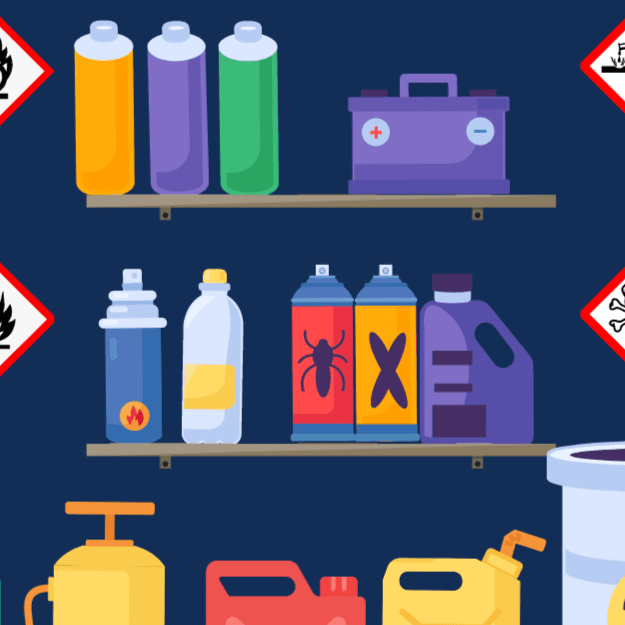Not sure what to do with the last of the lawn fertilizer? Did you find a can of bathroom cleaner hiding in the back of a cupboard? Have you decided to clean out your garage?
All of these items are Household Hazardous Waste and need to be handled carefully.
– Always keep products in their original container. The packaging will provide storage and disposal instructions specific to each product.
– Never pour a hazardous liquid on the ground. Even the smallest quantity can kill vegetation and sterilize the soil for years. Groundwater is too close to the surface to risk creating a plume of contamination in the Ogalala Aquifer. Anything that doesn’t soak in will be washed into lakes and streams in the next rainstorm as pollution.
– Not sure what to do? Reach out to Clean Community Systems or your local Household Hazardous Waste facility for more specific instructions.

Can household hazardous wastes be poured down the drain, on the ground, or put in the trash? Some can, but please don’t. There are better, more responsible ways to handle household waste.
Read the instructions on the package and dispose of any product as directed. Call your local Household Hazardous Waste facility for assistance.
When purchasing products, always read the label. Hazardous items will always contain a warning statement. Ensure you understand the intended use of the product and are buying the appropriate item. Only purchase as much as you need.
Responsible consumers may find it easier to switch to less harsh alternatives. Most commercially available household cleaners are hazardous and can be replaced with water, vinegar, baking soda, and soap.





